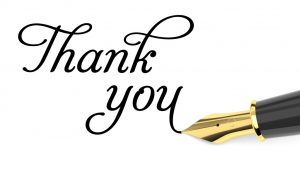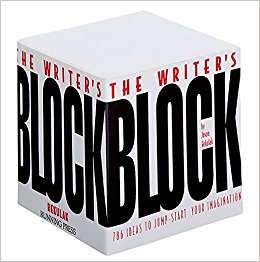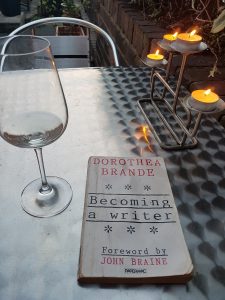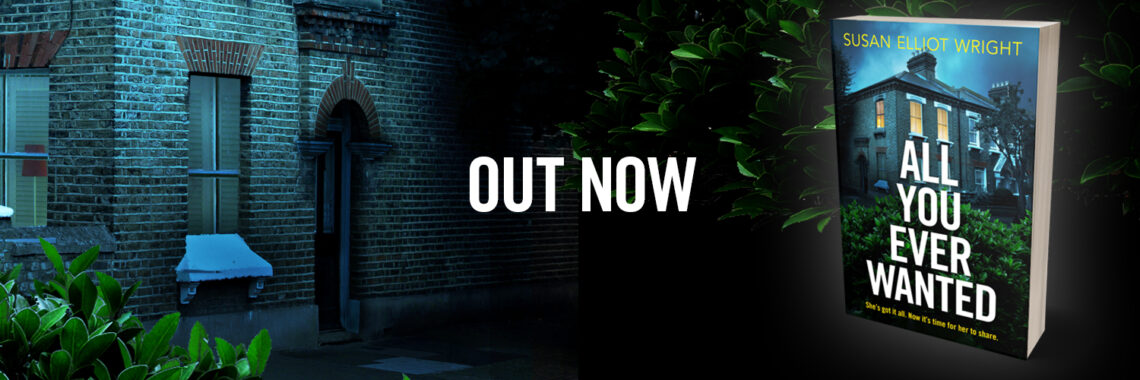Thank you for bearing with me over these five posts! I can’t believe that I set out to write a quick little blog post about writers’ block and it ended up at over 4000 words. The irony is not lost on me!

So picking up from from yesterday, I’d got to a point where I felt mentally and physically paralysed, and even the mention of writing would have me fighting tears. I concluded that I had writers’ block. I wasn’t stuck on an idea or a plot point, it was that I couldn’t write anything more challenging than a shopping list.

What did I do about it?
The time had come for me to fess up to my agent. I was worried she was going to call me and say, ‘How’s the book going?’, only for me to burst into tears and say, ‘It isn’t!’ So I emailed her to explain the situation, and received a lovely, sympathetic and understanding email in return. She suggested I that I take some time off, a month, maybe – some time away from even thinking about writing.
At first, I struggled with that idea – I’ve never been very good at taking time off. But eventually I saw sense. Given that I teach writing and had workshops to deliver, I couldn’t avoid thinking about writing altogether, but I did give myself a break, spending most of my time reading, or (and this may not have been the best idea) looking up solutions for writers’ block.
Advice from the Guru Google
Much of the advice I found – ‘go for walk’, ‘use a writing prompt’ or ‘try 15 minutes of freewriting’ – is good advice for someone who’s stuck, but it doesn’t really help a block. There is some good advice out there, but you have to trawl through a lot of confusion between being stuck and being blocked.
Some advice was useful though, especially when it focused on healing, or on appreciating creativity or nature rather than on forcing the writing. Things like: visit art galleries, listen to music, walk in the countryside, meditate, do yoga, spend all day reading, go dancing etc. Activities which in the past I’ve probably regarded as skiving. I’m sure I’m not the only writer who feels guilty for taking time off. It’s crazy really, because even when we’re not actually writing (or doing research, or marketing, or social media) we’re still thinking about our characters and their stories.

So I relaxed. A little. I could probably have relaxed a bit more, but it was a start. I was anxious to start some kind of writing, so I decided to go back to the good old ‘morning pages’ idea, as recommended by Julia Cameron in The Artists Way and Dorothea Brande in Becoming a Writer.
The latter is one of two books I recommend to every beginner writer, as well as to writers who are struggling to write (the other is Stephen King’s On Writing: a memoir of the craft). Becoming a Writer talks about the psychology of being a writer, about how the unconscious mind has a profound effect on the ability to write. Brande talks in particular about the voice of the inner critic, which, while it’s an essential part of the editing process, can be a confidence-destroying little fecker when we’re actually creating fiction. (Or in my case, even while we’re still at the thinking stage.)
One way of doing this is to train yourself to write to order and with no quality control. Brande suggests at least half an hour first thing in the morning, then another 15 minutes later in the day at a time you’ve chosen. It’s strict – if you say you’re going to write at 3pm, write at 3pm you must – not 2.55 or 3.05. You write anything as long as it’s not nonsense. It doesn’t have to be fiction, it doesn’t have to be good, it doesn’t even have to be grammatically correct. You just write, and you don’t look back at what you’ve written for at least a few weeks (if ever).
I did this for three weeks, filling a reasonably thick A5 notebook. It was a challenge, especially as the RSI in my hands and arms had flared up again. (It’s worse when typing so I use dictation software but sometimes the pain is severe in spite of this – I’m sure it’s another contributory factor to the block.) But it got me physically writing again, and that in itself has made me feel more positive.

I’m still a long way from starting a new novel, but I’ve jotted down a few notes – only brief thoughts, images, random situations. And writing this post has been an important step, because I don’t think I’d have been able to write it even a few weeks ago. Next, I’m starting work on a feature I’m planning to pitch ahead of the publication of Cornelia Blackwood in February. I want to have a draft in place now, because by the time the book is published, I fully intend to be working on a new novel. Then I have a week’s holiday in Wales, and for the first time in 12 years, I’m not taking my laptop! When I come back, I’m going to start thinking through ideas again.
So, that’s the story – much longer than I’d anticipated – of my writers’ block how I’m slowly coming through it. I hope you’ve found this interesting and useful, and if you’re going through something similar, my heart goes out to you. One thing that helped me enormously was hearing other writers talk about their own experiences of writers block, and that’s another reason I wanted to write this post. My thanks to them – I hope they know who they are – and to you for sticking with this week-long post!
If you’d like to keep an eye on what I’m up to, please follow me on Facebook and Twitter
If you’d like to subscribe to this blog, please click the pink ‘subscribe‘ button on the right. And if you’d like to receive information about my workshops, and occasional news about my books and events, you can sign up to my mailing list here

Thanks for sharing this brave and inspiring (and long!) blog, Susan. It picked me up when I was feeling a bit ‘wot’s the point?’ about my writing.
Thanks for this comment, Cath, and I’m glad it picked you up a little. I think we all feel ‘wot’s the point’ every now and again – the writing life is very up and down. I remember once reading a great analogy that went something like this: ‘being a writer is like crawling on bare knees through a field of broken glass because you know you’ll find the occasional fist-sized diamond.’ I think that about sums it up!